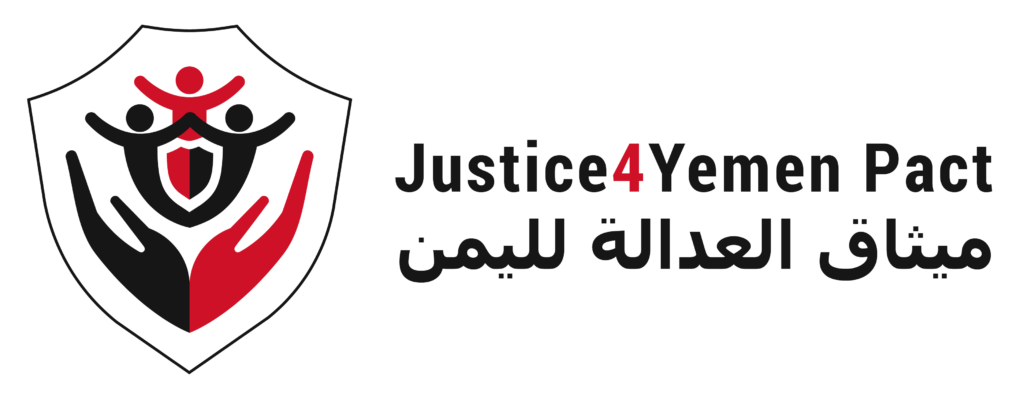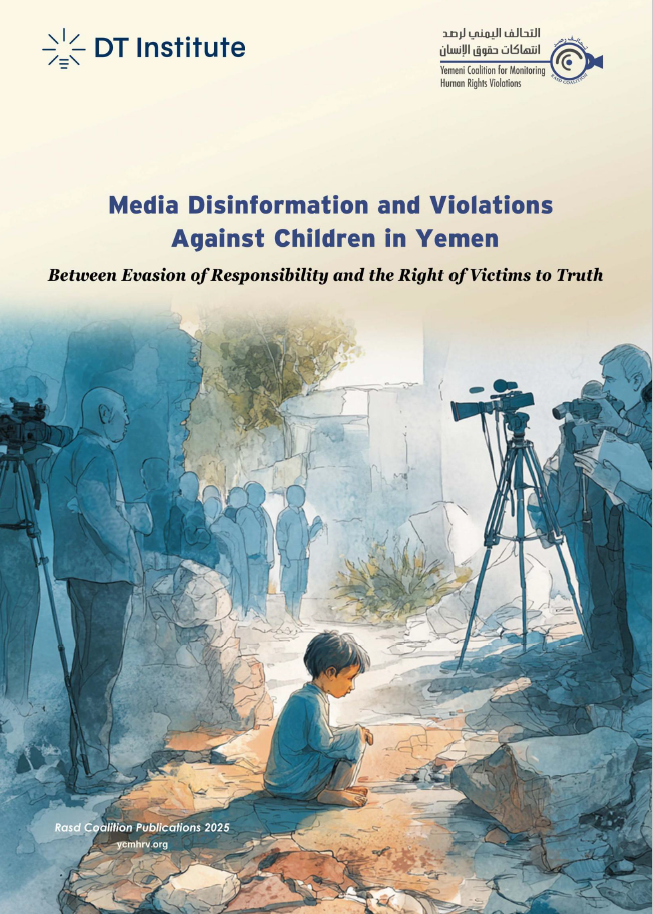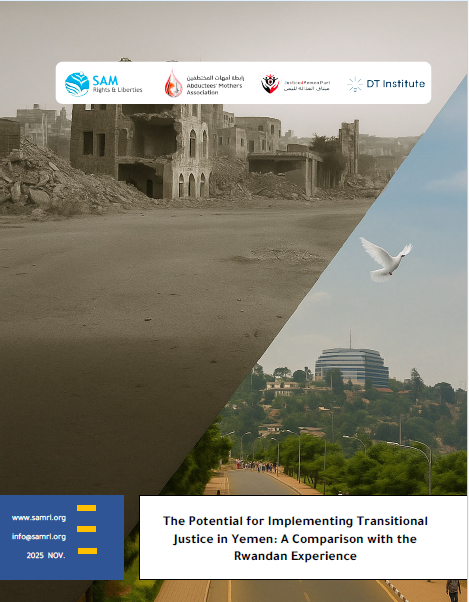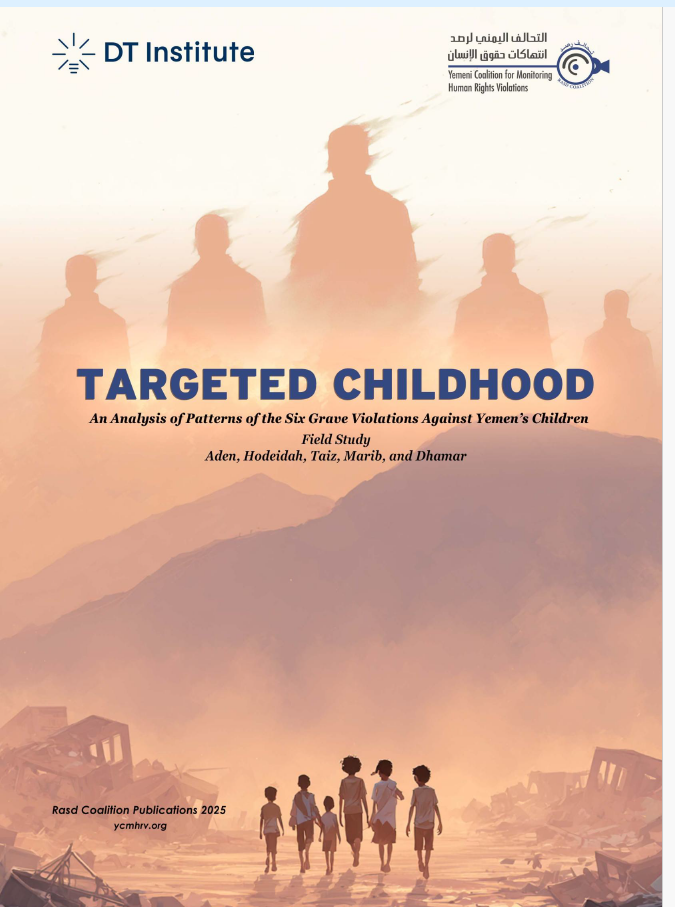| Incident: | Killing of a child due to an explosive detonation in Razeh, Sa’ada |
| Date: | March 5, 2024 |
| Location: | A farm in the Bani Rabi’ah area, Razeh border district, Sa’ada Governorate |
| Type of Violation: | Killing caused by a landmine explosion |
Introduction: The Last Game in the Fields of Death
In his family’s farm near the border village of Bani Rabi’a in Razih, Sa’da, an unknown child clutched a shimmering stone, unaware it concealed a landmine planted by the Houthi militia during their occupation of the area, on March 5, 2024. The device exploded, tearing through his small body in front of his family. Yet the tragedy did not end with his death—it deepened with the official narrative: the Houthi-run Saba news agency and Al-Masirah channel claimed the blast was from “Coalition cluster bomb remnants.”
The Cluster Bomb Lie: A Systematic Mechanism of Denial
Independent outlets like Sahel Net, reported that the mine was planted by the Houthis, but the Houthi propaganda quickly replaced the term “landmine” with “cluster bomb” in their reports. Allegedly, the group also erased on-site evidence that could identify the munition’s origin.
Despite having full control over the area and responsibility for mine clearance, the Houthis ignored these facts. According to field investigations by Rasd Coalition: “This is part of a repeating pattern: 62% of landmine victims in Sa’da are children, and 90% of incidents are falsely blamed on Coalition remnants.”
Half a Million Mines and an Escalating Media War
Data reveals the horror: the legitimate Yemeni government accuses the Houthis of planting 500,000 landmines. International organizations have documented 876 civilian deaths due to Houthi mines between 2022–2025, 70% of whom were children.
Still, euphemisms are used in media reporting, phrases like “explosive device” instead of “mine,” and “victim of aggression remnants” in place of “militia negligence.”
The story of the Razih child is not isolated. It is a case of double violation;
“Physical crime” deploying indiscriminate landmines in civilian areas
“Narrative crime”: distorting the truth and erasing the identity of victims
Rasd Coalition Calls for Action;
– Immediate investigation into mine origins in Sa’da
– Holding militia leaders accountable for media disinformation
– Requiring Houthi forces to surrender detailed mine maps
“The child in Razih was not killed twice only, rather his name and suffering were stolen with the blast.”
Houthi Disinformation Strategy
Since seizing Yemen’s capital in September 2014, the Houthis have dominated state-run media, shut down opposition channels, and blocked nearly all independent or critical digital platforms.
According to a 2016 *Al Jazeera* report, most private and party newspapers ceased publishing in 2015 due to threats and repression. Within the first year, 120 local, Arab, and international news sites were blocked.
Today, Yemen ranks third globally for web censorship, with 62% of sites inaccessible according to *top10vpn.
Meanwhile, the Houthis invest in media outlets and artistic productions that push false narratives about their opponents—part of their strategy to control public perception and justify their violence.
The Yemeni Policy Center observes that the militia manipulates public narratives in controlled regions:
“To maintain a competitive advantage in messaging and media discourse—what they often call “soft warfare.”
Conclusion: Turning Victims into Political Props
On March 5, 2024, a child died in Razih’s mine-laden soil, within a zone fully under Houthi control. Yet the militia shifted the blame, claiming “cluster bomb remnants” from Saudi forces, despite field evidence implicating their mines.
This is not a single tragedy but part of a horrifying pattern:
– 62% of landmine victims in Sa’da are children
– 90% of cases are misattributed to war remnants
– 500,000 mines allegedly planted
– 120 news platforms censored or co-opted
The manipulation doesn’t just hide the crime—it robs victims of dignity and turns them into silent statistics. As the Yemeni Policy Center warns:
“Houthi soft warfare seeks to normalize violence by controlling the narrative.”
An Appeal to the International Community
To the UN, human rights organizations, and global advocates:
“Enough. Yemen’s children die twice—once from mines, once from lies that shield the perpetrators. We demand:
– An independent international investigation into mine sources in Sa’da
– Classification of disinformation as a war crime
– Support for mine awareness campaigns in border villages”
And to the Yemeni government:
“The demand for mine maps is a humanitarian imperative that cannot expire.”
The tragedy of Razih’s child is a resounding reminder:
Silence toward disinformation enables impunity, and turns Yemen’s soil into a mass grave.
“Stealing a victim’s name is uglier than stealing their life—it denies the living their right to justice.”





